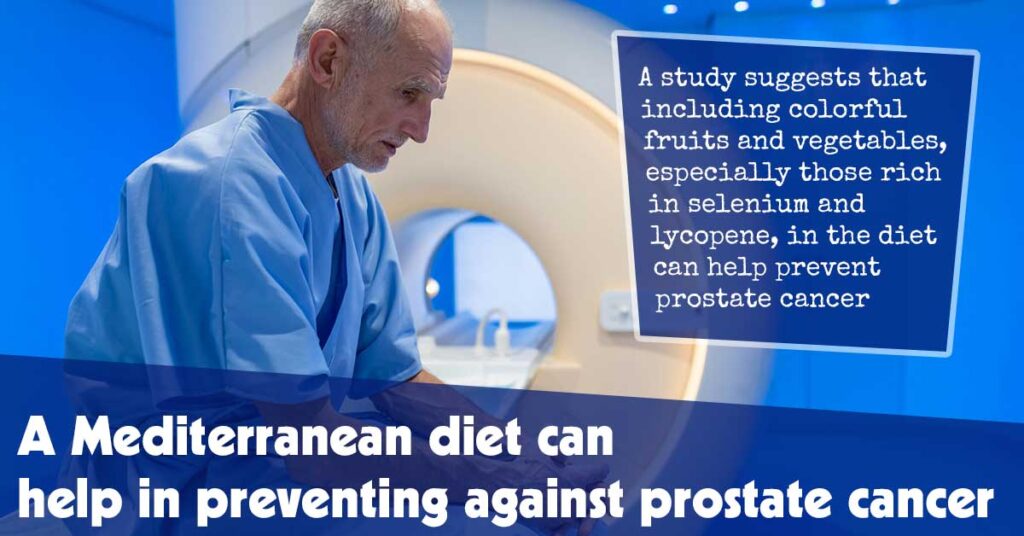Researchers have recently shown that regular consumption of colorful fruits and vegetables may help lower the risk of prostate cancer among men. A variety of micronutrients found in a rainbow of foods not only help protect against it but also aid recovery for those receiving radiation treatments for prostate cancer. According to this research study, adopting a Mediterranean style diet featuring these foods would be particularly effective.
Comparative to healthy controls, prostate cancer patients had significantly lower levels of selenium, alpha-carotene, lycopene and lutein than their healthy counterparts while also showing higher calcium sulfur and iron concentrations in their plasma concentrations.
Men with plasma concentrations below 0.25 micrograms/milliliter for lycopene and 120 micrograms/liter for selenium may have an increased prostate cancer risk and be more radiation sensitive.
Increased DNA damage was linked to low levels of selenium and lycopene in blood plasma after radiation exposure, underscoring the importance of including these micronutrients in diet, especially for men who had undergone radiation treatment for prostate cancer.
Lycopene-rich foods include cranberries, watermelons, peaches, grapes, papayas, melons and tomatoes while selenium-rich food sources include nuts, eggs, shellfish fish and white meat – however the study advises eating naturally rich food over supplementing them as their benefits are limited.
Though the study recommends a Mediterranean diet, it’s important to keep in mind that individuals absorb nutrients differently depending on factors like food, digestive system health, genetic makeup and microbiome composition. Consultation with a dietician is vital in order to ensure you absorb as many essential vitamins and minerals as possible.
Prostate cancer is one of the most lethal and prevalent cancers afflicting men today, yet its correlation with nutritional deficiencies remains poorly understood. Although other risk factors such as age, ethnicity and family history have been implicated with prostate cancer risk factors; being tall or overweight as well as diets low in vitamin E but high in dairy products could increase its chances.
Vitamin E can be found in vegetables, fruits, seeds, nuts and plant-based oils; its consumption should be taken into account when working to prevent prostate cancer.
Conclusion of the Study The results suggest that including colorful fruits and vegetables rich in selenium and lycopene in one’s diet can help lower risk for prostate cancer, while improving men’s overall health. Adopting a Mediterranean Diet, working with a dietician, and opting for naturally abundant foods instead of supplements could also significantly lower prostate cancer risks.




